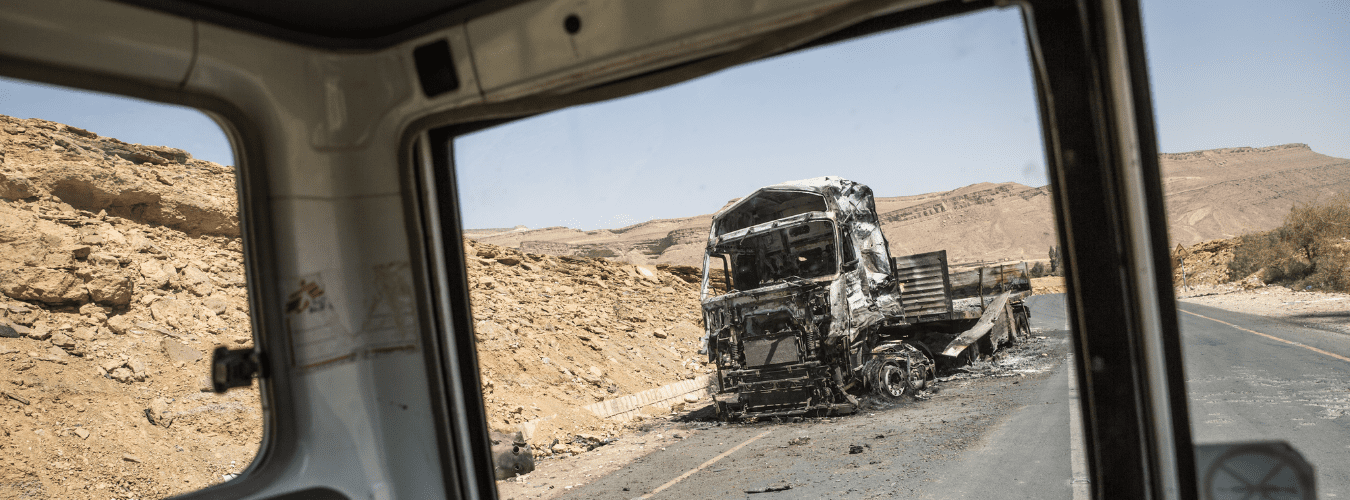Twenty years after the start of the so-called global ‘War on Terror’ [1], counter-terrorism policies and their consequences are rendering the provision of impartial medical care more dangerous and difficult. Humanitarian workers and groups must be given exemptions from counter-terrorism measures. These are among the findings of a new report, Adding salt to the wound, which Médecins Sans Frontières (MSF) has released, highlighting the consequences of counter-terrorism wars on our frontline workers.
“MSF frontline staff told us about how they are harassed, intimidated, beaten and accused of supporting terrorists when they provide impartial healthcare,” said Luz Saavedra, the lead researcher for the report in the MSF Analysis Department.
The report is based on qualitative research with MSF frontline staff working in, and coming from, Afghanistan, Nigeria and Iraq. The report focuses on elements that were found to be present across all three countries. Our staff consistently described these counter-terrorism conflicts as ‘dirty wars’ where “no one is safe”.
Counter-terrorism policies and practices bring real and personal risks to medical practitioners, the report found. Nearly two-thirds of staff who gave in-depth interviews had directly experienced or witnessed violence or intimidation, and had been accused of supporting ‘terrorists’ when they treated patients based on their needs alone. Armed forces have used violence at the gates of health facilities, inside hospital wards and in ambulances on the road, in an attempt to prevent our staff from treating patients based on medical need and according to medical ethics.
From the perspective of frontline workers, it becomes increasingly difficult to distinguish between the tactics of so-called terrorists and of those countering them.
Entire communities are obstructed or hindered from accessing care. Civilians and combatants are often merged into what is considered by armed forces as one hostile enemy. Armed forces try to justify stripping civilians of their protection under international law because they are ‘terrorists’ or ‘supporters of terrorists’.
The humanitarian principle of impartiality – treating patients based on needs alone – was identified by our frontline workers as being vital to uphold and defend in counter-terrorism environments. However, the research participants also pointed out how being genuinely impartial comes under constant attack in very real and dangerous ways.

“It is outrageous that states expect health workers to refuse to treat patients based on politics or military considerations,” said Saavedra. “Our teams are considered by those fighting counter-terrorism wars to be part of their military strategy; we are accepted when we are useful but rejected when we are considered not to serve their military and political purpose.”
“We cannot accept this – it prevents us from treating patients and goes against everything that being humanitarian stands for,” Saavedra added.
Research participants pointed out how the perceived proximity of humanitarian groups to states in counter-terrorism wars generated suspicion from armed opposition groups that often rejected engaging with MSF or other humanitarian organisations. We currently find ourselves too often restricted to one side of a front line with a counter-terrorism force that wants to take advantage, and an opposition that won’t talk or is hostile.
These research findings offer a unique insight into the reality of working in counter-terrorism environments. Frontline workers know how difficult it is to operate in conflict zones; and they say counter-terrorism laws and practices make it even harder by adding “salt in the wound”. But the perspective of frontline workers is rarely considered in policy discussions on countering terrorism.
“Unfortunately, the findings of this research do not come as a surprise,” said Francoise Saulnier, MSF’s International Legal Director. “The War on Terror has eroded the protection of the medical mission by prioritising domestic counter-terrorism laws rather than international humanitarian law. This often leaves our teams exposed to states’ interpretations of laws and of the role of healthcare.”
We need to be able to provide treatment according to medical needs alone. We need to be able to talk to all groups that control access and could harm our teams. Our health facilities need to be spared from any kind of military and security operations.
To achieve this, MSF is once again calling for humanitarian exemptions in counter-terrorism environments.
“This means that impartial humanitarian organisations must be exempted from being targeted by the legal regimes and military tactics that have come to define the War on Terror,” says Saulnier. “Seeking or providing much-needed healthcare cannot be punished in the name of ‘fighting terrorism’.”
[1] The Global War on Terror is an ongoing military campaign, started by the United States in the wake of the attacks on 11 September 2001.
-
Related:
- Adding salt to the wound
- Conflict











